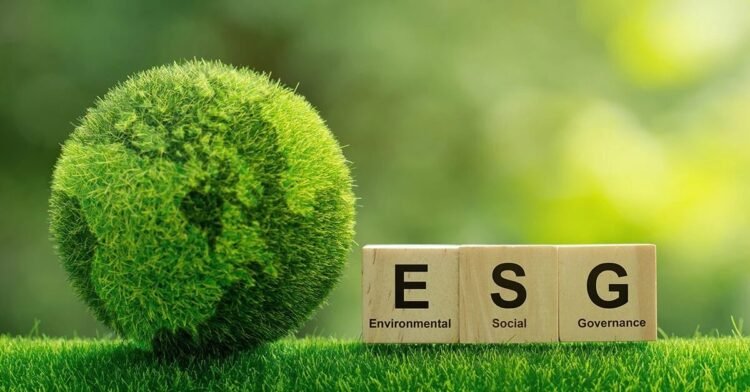Industry Leaders Address Environmental, Social, and Governance Issues Amid Growing Pressure
The textile sector in India, a vital contributor to the nation’s economy, is grappling with significant environmental, social, and governance (ESG) challenges. Leading companies such as Arvind Limited, Raymond Limited, and Grasim Industries are under increasing scrutiny for their practices, facing allegations of environmental pollution, labor rights violations, and human rights concerns. As consumer demand for sustainable products grows and regulatory frameworks tighten, these firms are navigating a complex landscape by implementing sustainability initiatives while addressing persistent challenges. This report explores the specific issues faced by these companies, the broader sector’s ESG risks, and the opportunities for mitigation.
Key ESG Metrics for Arvind, Raymond, and Grasim
| Company | Environmental Initiatives | Social Initiatives | Governance Initiatives | Key Challenges |
|---|---|---|---|---|
| Arvind Limited | 40% GHG reduction target by 2025 (31% achieved); 87% sustainable cotton in FY2023-24; 22% renewable energy usage. | ISO14001 certification; biodiversity risk assessments. | Transparent reporting on sustainable cotton sourcing; third-party audits. | Water pollution in Gujarat; worker safety and wage issues; supply chain transparency concerns. |
| Raymond Limited | Project SU RE; Ecovera fabrics from recycled PET; zero liquid discharge at denim plant. | CSR focus on healthcare and women empowerment (Rs 1.52 crore spent in FY2019-20). | Collaboration with Reliance Industries for sustainable fabrics. | High water usage; air pollution; labor rights violations; sourcing transparency issues. |
| Grasim Industries | 50% GHG intensity reduction by FY2029-30 (17% achieved); 36,62,856 MT waste recycled in FY2024; 38.01 million m³ freshwater use. | Empowering 3,000+ women annually through self-help groups; safety training programs. | Internal carbon pricing; Gold Level Material Health Certificate; climate advocacy. | Nagda plant pollution; chemical exposure risks; deforestation in wood pulp sourcing. |
Arvind Limited: Environmental and Social Challenges
Arvind Limited, a prominent textile manufacturer, has faced significant criticism for its environmental and social practices. The company has been accused of water pollution in Gujarat due to untreated effluents from its textile processing units, which have reportedly contaminated local groundwater sources, affecting nearby communities. Socially, Arvind has faced allegations of inadequate worker safety measures and underpayment, particularly in outsourced facilities during high-output periods. Additionally, the company’s lack of transparency in raw material sourcing has raised concerns about the potential use of forced or child labor in its upstream supply chains.
Despite these challenges, Arvind has made strides in sustainability. The company holds ISO14001 certification for its environmental management systems, ensuring compliance with international standards for water, energy, waste, and air quality management. Arvind has set a target to reduce greenhouse gas (GHG) emissions by 40% by 2025, using a 2015 baseline of 856,712 MTCO2e, and has already achieved a 31% reduction. In FY2023-24, Arvind consumed 1,174,424.19 MWh of renewable energy, representing 22% of its total electricity usage, and sourced 87% sustainable cotton, contributing to avoided emissions of 38,912 MT CO2e. The company is also committed to circular fashion, recycling 83.4 tonnes of post-consumer textile fibers in FY2023-24, and has conducted biodiversity risk assessments to address ecosystem impacts.
Raymond Limited: Legacy Issues and Sustainable Innovations
Raymond Limited, known for its worsted suiting fabrics and retail network, has faced environmental and social criticism. The company’s older manufacturing units have been criticized for high water usage and insufficient wastewater treatment systems, contributing to water pollution. Air pollution from coal-based power generation has also been a concern, with local communities affected by emissions. On the social front, labor unions have highlighted issues such as unfair dismissals, low wages, and inadequate safety equipment in outsourced garment factories. Governance challenges include limited disclosure on the traceability of wool and cotton sources, raising questions about ethical sourcing practices.
Raymond has responded with sustainability initiatives, notably through its participation in Project SU RE (Sustainable Resolution) launched in 2019, which aims to reduce the textile industry’s environmental footprint. The company has collaborated with Reliance Industries to produce Ecovera, a range of eco-friendly fabrics made from recycled PET bottles using bio-fuels and energy-efficient processes. Raymond’s denim plant, Raymond UCO, operates as a zero liquid discharge facility with a 100% biological effluent treatment plant (ETP) and three-stage reverse osmosis to recover and reuse wastewater. These efforts demonstrate Raymond’s commitment to addressing its environmental challenges while meeting consumer demand for sustainable products.
Grasim Industries: Legal Hurdles and Sustainability Leadership
Grasim Industries, a flagship company of the Aditya Birla Group, has faced a range of legal and regulatory challenges across competition law, environmental compliance, and labor issues. The company’s Nagda plant in Madhya Pradesh has been accused of polluting the Chambal River with viscose staple fiber (VSF) effluents and emitting volatile organic compounds (VOCs), impacting air quality in nearby areas. Worker unions have flagged health risks from exposure to chemicals like carbon disulfide in VSF manufacturing. Additionally, Grasim’s sourcing practices for wood pulp used in viscose production have been criticized for potential deforestation and violations of indigenous peoples’ rights in supplier regions. The company has also faced penalties for provident fund delays post-merger and minor e-way bill errors.
Grasim has made significant progress in addressing these issues through robust sustainability initiatives. The company has set a target to reduce GHG intensity in its Cellulosic Staple Fibers by 50% by FY2029-30, using a 2019 baseline, and has already achieved a 17% reduction by FY2023-24. In FY2024, Grasim’s Scope 1 emissions were 7,65,44,684 MTCO2e, Scope 2 emissions were 30,74,325 MTCO2e, and Scope 3 emissions were 1,31,05,458 MTCO2e. The company has implemented internal carbon pricing at its UltraTech subsidiary at USD 10 per metric tonne CO2e and focuses on resource efficiency, recycling 36,62,856 metric tons of waste in FY2024. Grasim’s water management efforts include a net freshwater consumption of 38.01 million cubic meters in FY2024, with 74% of its cost of goods sold (COGS) coming from water-stressed areas. The company also engages in climate advocacy through organizations like the Sustainable Apparel Coalition and has earned a Gold Level Material Health Certificate for its dope-dyed VSF.
Broader Textile Sector Challenges
The textile sector faces significant ESG challenges that extend beyond individual companies. Environmental challenges include resource-intensive processes, such as the use of over 20,000 liters of water to produce 1 kg of cotton, and pollution from chemical effluents and microplastics. Social challenges encompass labor rights violations, including low wages, unsafe working conditions, and gender inequality, with women forming a significant portion of the workforce yet facing pay gaps and harassment. Governance challenges involve supply chain opacity, making it difficult to trace raw material sourcing, and compliance issues with evolving regulations on emissions and worker rights. These challenges expose companies to regulatory, reputational, operational, and financial risks, such as carbon taxes and resource scarcity.
Opportunities for Mitigation
The textile sector has opportunities to address these challenges through sustainable practices and innovations. Adopting circular economy models, such as recycling and upcycling, can reduce waste and resource consumption. Investments in green technologies, like waterless dyeing and renewable energy, offer pathways to lower environmental impact. Certifications such as OEKO-TEX, Fair Trade, and the Global Organic Textile Standard (GOTS) can enhance credibility and ensure ethical practices. Transparent reporting and third-party audits are critical for building trust with consumers and investors. Companies like Arvind, Raymond, and Grasim are already pursuing some of these strategies, but broader adoption across the industry is needed to drive systemic change.
(India CSR)





















